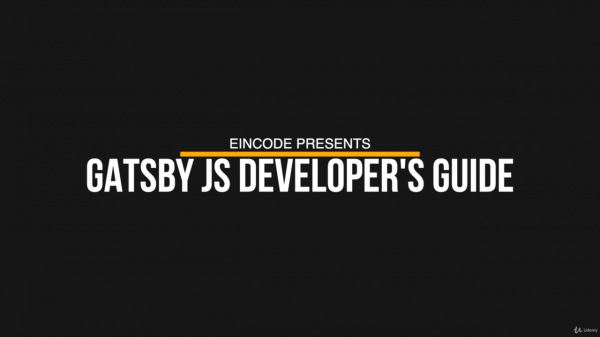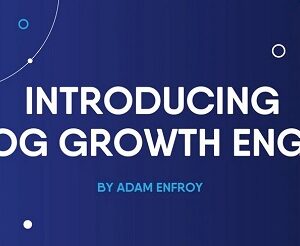Gatsby JS Developer’s Guide – Important Parts & Blog App 2021 TUTORiAL
Original price was: $255.00.$42.59Current price is: $42.59.
This Course is available for download now. You can contact us for Screenshots or Demo. Access for this course will be sent on google drive. Join our telegram channel to see updates and occasional discounts. If you want to pay through Paypal or Card contact us – On Telegram Click Here or contact on Mail – [email protected]
Description
Gatsby JS Developer’s Guide – Important Parts & Blog App 2021 TUTORiAL Download now
Are there any requirements?
Basic React JS knowledge.
What this course cover?
This course is covering all you need to start working on your own Gatsby JS projects. Students of this course will be learning everything by working on real features building their own Blogging application.
Gatsby JS has a rich ecosystem and requires an initial time investment. That’s why I created this guide where you can find everything in one place.
Short Curriculum
Basics of Gatsby JS and initialization of the project. Explanation of folder structure and instruction on how to create new pages.
Templating system, Different types of stylings, and ways how to pass data to the pages.
Basics of GraphQL, construction of custom queries, resolvers, arguments, and custom types.
Node architecture and creation of new nodes.
Plugin system. Explanation of source and transformer plugins. Sourcing data from a local filesystem and rendering markdown files into actual HTML pages.
Filesystem route API
Pagination feature. Construction of queries to get pagination data to render static pagination pages.
Search feature. Explanation on why do you need a search index and what is a search engine?
SEO search engine optimization improvements. Use of different meta tags and data to get the best search results. Usage of Open graph tags.
RSS feature. Explanation of really simple syndication and creation of XML file. Subscribing to the blog page through RSS aggregators.
Deployment to Gatsby cloud. Pushing the code to Github repo. Previewing the application on the internet.
PWA features. Explanation of progressive web application, offline support, and installation of the app like a native one.
Context theme provider. How to use context providers and what is the best spot to implement them



